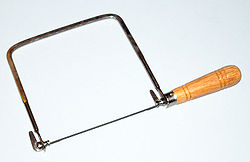Litany of the Everyday
 In our family we observe a common Catholic tradition: whenever we hear a siren, we say a Hail Mary, “for whoever is in need and for the first responders”.
In our family we observe a common Catholic tradition: whenever we hear a siren, we say a Hail Mary, “for whoever is in need and for the first responders”.
Since we live just a few blocks from a fire station, we get lots of practice in this devotion.
Which also affords our daughter Liz, now two years old, plenty of opportunity to indulge her new passion: she loves reciting prayer lists as long as your arm. The longer, the better, and once she gets started it’s hard to stop her.
It’s my own fault, really. During the intention part of our nightly family prayers we usually run down the names of everyone in the family to pray for them. I’ve got seven siblings, all of them married and most with kids. Plus a wonderful grandmother still living, scores of aunts and uncles and cousins, and of course we have the dearly departed to remember in prayer, so it makes for a sizeable list even before we get to my wife’s side of the family.
As a result, Liz has developed the idea that prayer intentions should come in epic, unroll-the-scroll size lists. I have to concede that there’s a certain logic to her approach. With a universe of need out there, why confine yourself to just one or two prayer intentions? But it also means that our dinners now start something like this:
“Bless us O Lord, and these Thy gifts . . .”
“And Harry,” Liz interjects.
“And bless Harry,” I’ll say, then continue: “from thy bounty . . .”
“And Melissa,” Liz says.
I nod my head. “And please bless Melissa, also” and then continue: “through Christ Our Lord . . .”
“And Grandpa,” Liz chimes in.
“And Grandpa,” I agree.
And when I see Liz drawing breath and preparing to open her mouth again, I dart in with a fast “Amen.” It’s a tactic I use sometimes to surprise her — the prayer equivalent of a quick-snap in football — and bring proceedings to a close before she can continue her list. I know, it sounds bad – cutting-off the prayers of a child. Whoever heard of a parenting book with strategies to curb excessive piety? But sometimes I have to, or our family might never eat a hot meal again.
The same thing happens with our Hail Mary’s when we hear a siren. What should be a quick 40 second prayer can grow to a catalogue of intentions rivaling the Federal Budget in volume.
So it was the other day when I got Liz after her nap. I changed her diaper and was holding her in the brown easy-chair – the Bear Chair, as it’s been dubbed ever since the book Can’t You Sleep Little Bear? first made its entrance into our pre-bed-time reading rotation. Liz likes a cuddle in the Bear Chair after her nap and we were deep in our post-slumber snuggle when we heard a siren.
Liz looked up at me.
“Hail Mary, Daddy,” she instructed.
“You’re right, Honey,” I said, made the sign of the cross, and began our prayer.
Liz watched intently through the Hail Mary, alert for her opening, wary lest Daddy try a quick-snap Amen. As soon as the words “and the first responders” left my lips, she sprang into the opening, proclaiming: “And for the hammer!”
We have a rule that we don’t pray for inanimate objects, but we can thank the Lord for them, so I said: “And thank you Jesus for our hammer.”
“And coping saw,” Liz said, nodding solemnly. We had been exploring the tool kit earlier, and saw that it was good, so tools were much on her mind.
tools were much on her mind.
“And thank you Jesus for our coping saw.”
Now she was in her stride and out poured a list of all the things that have fascinated or brought joy to a two-year old as of late, and we thanked Jesus for each:
Closets (fun to hide in).
Clothes (especially scooped into a pile on the floor for playing in).
Couch (great for jumping on).
Sweatshirt (cozy).
Coke (delicious).
Mountain Dew (even more delicious).
And so on, and so on, and so on. I resigned myself to Liz’s extensive Litany of the Everyday, sure that when she can read she’ll be one of the few people who enjoy the genealogy sections of the Bible. My head lolled back on the Bear Chair as I intoned “Thank you Jesus for . . .” an assortment of items ranging from dollies to donuts. Then, just as my thoughts started to wander, Liz hit me with a zinger: “Thank you for Liz being born.”
I sat up in the Bear Chair. It was Liz’s birthday a few weeks before, and on her birthday we had thanked God for giving us the gift of her. Ever since her birthday balloon-blowing and Happy-Birthday-singing have been favorite games, so I knew the candles and cake and other festive trappings had been appreciated, but I didn’t realize the prayer in thanks of herself had also made an impression.
“And thank you Jesus for the gift of Liz,” I said, not without a little more huskiness in my voice than usual.
I was also struck with a realization from Liz’s juxtaposition of the extraordinary with the ordinary. Snuggling drowsy and cozy with my daughter in the Bear Chair, I saw that I was probably like a lot of the folks in the crowd of the 5,000 (Mt 14, 13-21) and the 4,000 (Mt 15, 32-39) receiving loaves and fishes without fully appreciating the gifts placed in my hands.
It’s a matter of perspective. The multiplication of the loaves and fishes is always told from the insiders’ point of view, the twelve apostles, those with a front-row seat who were in the know and fully apprised of the audacious facts – that Jesus proposed to feed a vast multitude with a handful of fish and a few loaves of bread.
The apostles knew full well what was happening. It was they who had counted their stores and told Jesus there was no way they could feed all the people with what little they had. Not even with 200 days wages could they feed the vast crowd assembled there in a deserted wilderness. And it was the apostles who Jesus charged with feeding this crowd, telling the apostles to have the throngs seat themselves on the ground in companies. The apostles obeyed, and the people did too, sitting in groups of 50 or 100. Jesus blessed the food, broke it, and gave it to the apostles to distribute.
So the apostles were acutely aware of what was happening, and when they collected baskets full of scraps after all the people had eaten their full they knew what a miracle had been wrought in their in presence.
But what about the people out there sitting on the ground? They weren’t given any announcement about what was happening. No one ascended a raised dais with clanging gongs and shouted to the multitude: “Prepare to be dazzled as the amazing Jesus multiplies loaves and fishes before your very eyes!” For them, the people out there sitting on the ground, it was just “Pass the fish and bread, please.”
Deep in the crowd were probably plenty of folks with no idea what was going on with the loaves and the fishes. I wonder how many stopped to ask themselves, “Hey, we’re way out in the wilderness, a long way from town, and I haven’t seen any catering company setting-up cooking fires, so where did all this food come from? How did these guys cart enough bread and fish out here to feed all these people, with no advanced notice or planning?” Or how many just ate, without ever considering the source of their bounty?
All I know is that one member of the modern throng, sitting in a Bear Chair holding a little girl who still had the sense to look on everyday things with the wonder and gratitude they deserve, had only been eating his fill without really considering the source of his bounty. As with the loaves and fishes, there’s no clamor of fanfare accompanying the ordinary, everyday blessings God bestows on us to remind us just how extraordinary His gifts really are. We just get the blessings.
It made me think of something I heard from Mother Angelica once on EWTN. Mother Angelica said, “If someone hands you a piece of cherry pie, say ‘Thank You, Jesus.’” Now that’s a good perspective on the reality of where we stand in this world. I would only add, per Liz, that while you’re at it, tell Him thanks for the coping saw, too.
(© 2011 Jacob Frost)

